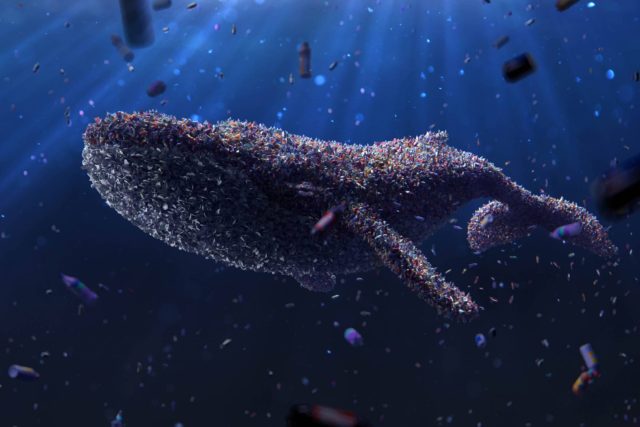In years of unprecedented technological advancements our societies are realizing more and more that our development as species comes with huge cost for the environment. For the last several decades we are talking a lot about the human effects on climate, but recently there is another issue that is grabbing our attention – the huge problem with plastic pollution.
Plastics are durable, light and versatile. However, they take up to 400 years to decompose. This will affect people’s lives for the next 16 generations. Our excessive use of plastics is impacting ocean health and biodiversity. By 2050, there could be more plastics in the ocean than fish by weight.
According to WWF, 91% of all plastics used on Earth are not recycled. Their production uses as much fossil fuel as airlines. 99% of plastics are contributing to climate change. Almost all marine animals are under threat
А recent study, published in Marine Pollution Bulletine, shows that fisheries, aquaculture, recreational activities and global wellbein are all negatively affected by plastics. The estimated decline in the benefits humans derive from oceans is between 1% and 5%. The resulting cost in such benefits, known as marine ecosystem value is up to $2.5 trillion a year.
The topic of our sustainable future and the decisions that enterprises and policy makers need to make in order to leave a better world for the future generations will be among the main points of discussion during the upcoming Webit.Festival Europe – the largest Digital & Tech event in Europe.
At the start of 2019 the EU Parliament approved a law banning a wide range of single-use plastic items, such as straws, cotton buds and cutlery, by 2021. The proposition was supported by 560 Members of the Parliament against 35. They also agreed a target to collect and recycle 90% of beverage bottles by 2029.
“Europe is setting new and ambitious standards, paving the way for the rest of the world”, the European Commission’s first vice-president Frans Timmermans, who is responsible for sustainable development said.
Under the new European law, tobacco companies will be required to cover the costs for the collection of cigarette butts and manufacturers of fishing gear will also have to pay for the retrieval of any plastic nets that have been left at sea.
The private sector is also coming in line with the global initiatives. Last month, Etihad Airways made its first fligh without any single-use plastics on board. According to the company, this marks the first time an airline in the region has undertaken such challenge. The move is part of Etihad’s overall strategy to reduce single-use plastics in its organization by 80% by the end of 2022.
Come to Webit.Festival Europe and learn about the steps that world has to make to build its sustainable future.
During the event you will get the chance to listen to top enterprise, science and policy leaders, such as the Airbus Defence and Space CEO Dirk Hoke, the Senior Parther at McKinsey & Co Paul Willmott, the VP of Amazon Paul Misener, the EU Commissioner for Digital Economy and Society Mariya Gabriel, the Deputy Director-General of World Trade Organization Yonov Frederick Agah and many others.
Here you can see a full list of the confirmed speakers at Webit.Festival, while here you can get all the information you need about the tickets for the event.
